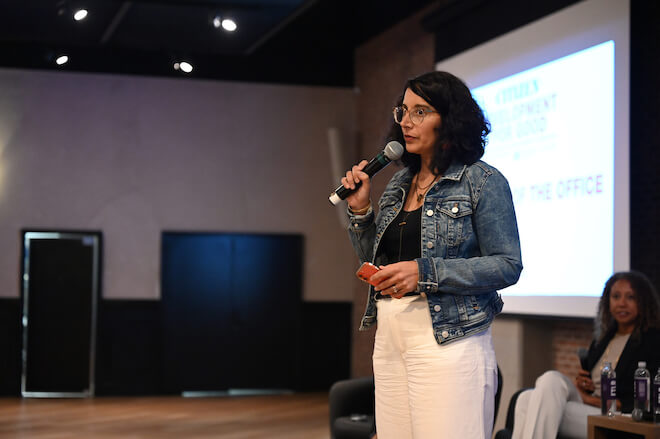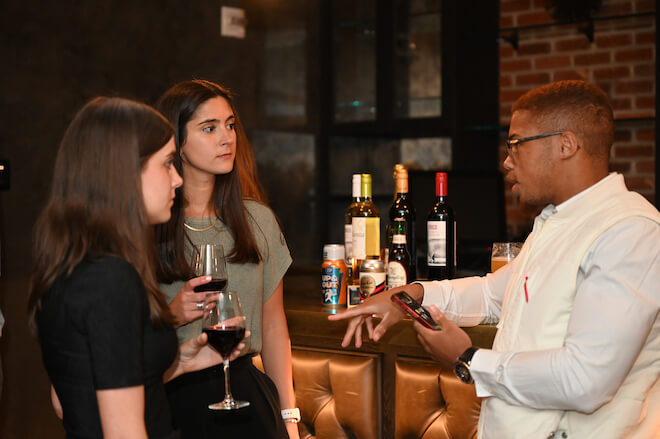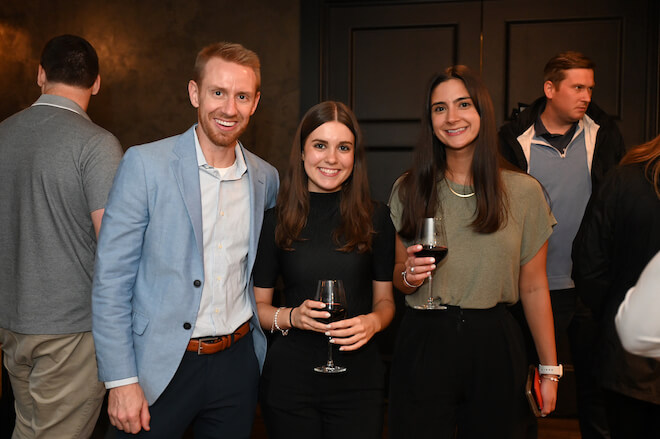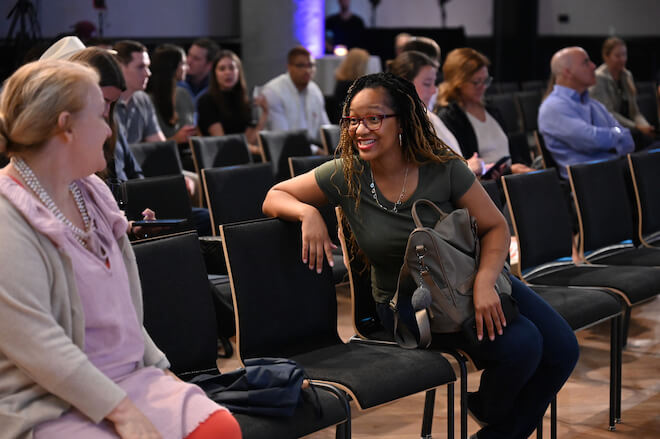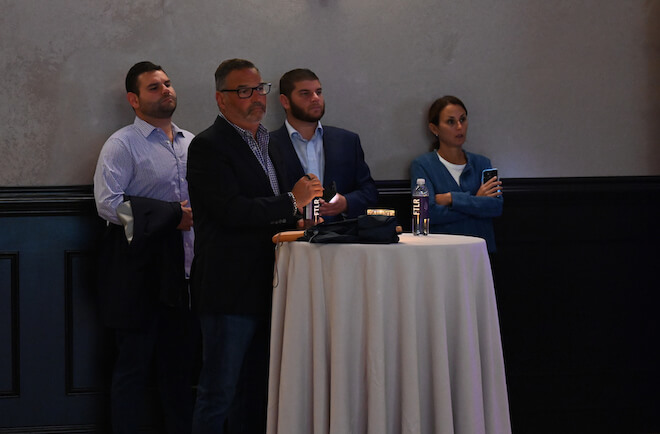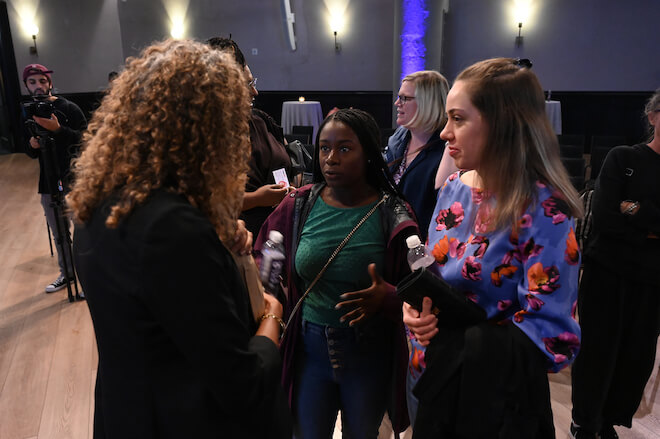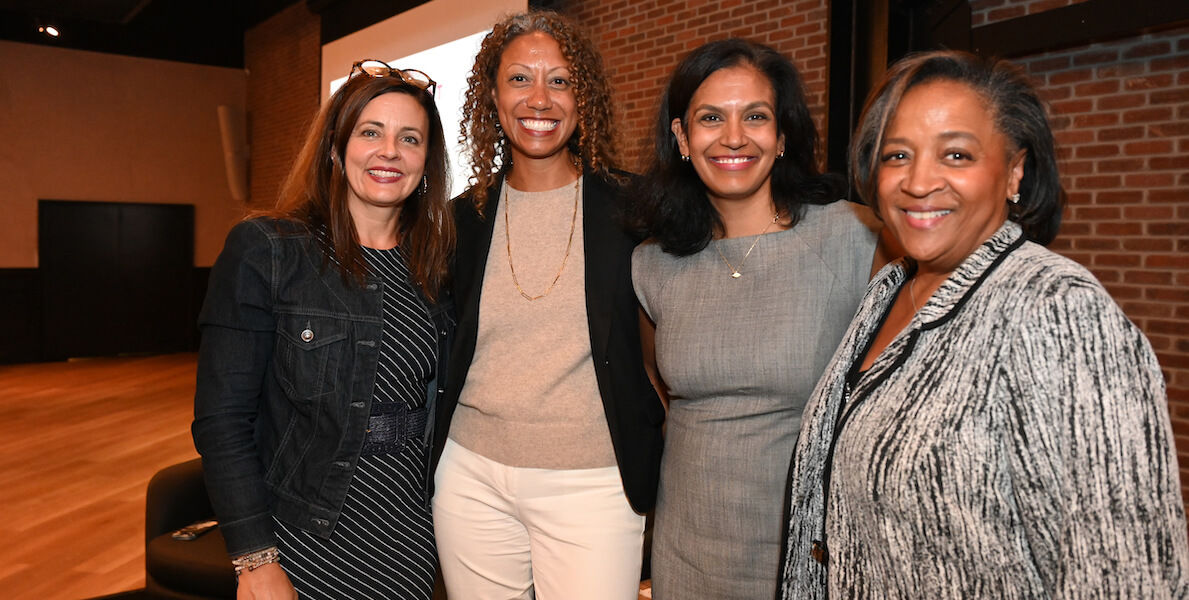“Nationally, one third of workers are back at the office,” said Prema Katari Gupta, vice president for parks and public realm at Center City District and executive director at Central Philadelphia Development Corporation. “And Philadelphia is lucky: We over-index on hospitality jobs and eds and meds, which are in-person jobs.”
On Wednesday, September 7, Gupta moderated a discussion among city corporate leaders about just what the return in-person work should look like in Philly — specifically, in Center City. The evening’s panelists were Kimberly Smith, vice president of workplace strategy at JLL, Crystal Ashby, chief people officer at Independence Blue Cross, and Angela Val, president and CEO of Visit Philadelphia. Approximately 70 guests attended in the Fitler Club Ballroom.
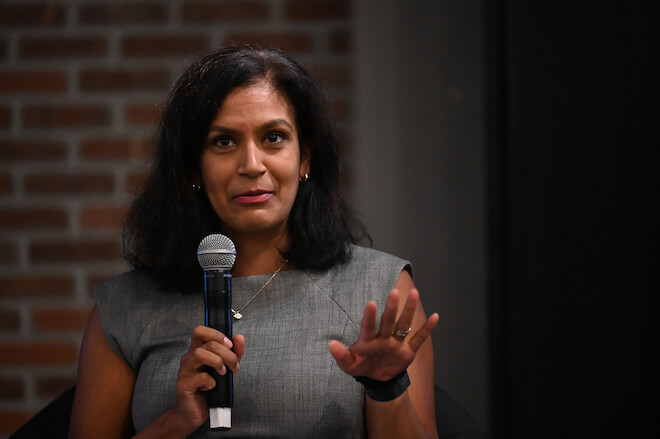
Gupta began by asking the panelists to comment on what work-from-home life had been like for them. (For her part, Gupta and her husband began — and later thought better of — a nightly cocktail-making routine.) Each panelist described the familiar yet unwelcome phenomenon of work overtaking personal time, and leaching into personal identity.
Ashby, who has lived in Philly for less than a year, said one of the pandemic’s major impacts on management was — or should be — requiring them, “for the first time … to understand where [employees] are coming from.”
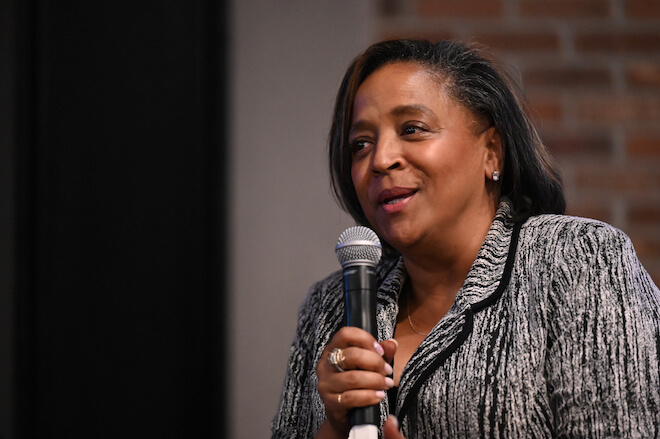
Understanding employees first
At Visit Philly, where Val recently took over the leadership role, the staff prioritized flexibility. She said, “For that to work, you have to trust me; I have to trust you. I have to manage you differently, and you have to manage yourself differently. I’ve told my staff: I’m not your babysitter, I’m not your wife. I’m not your mother. Be responsive to our stakeholders, your funders, your coworkers. I should never have to look for you. You should always get your work done in time. And never be an asshole. Of all our core values, the first one is trust.”
Smith pointed out that trust grows more naturally when encountering coworkers “eye to eye.” JLL conducted a survey of professional organizations and found “72 percent said the office is still going to be a large part of their ecosystem,” she said.
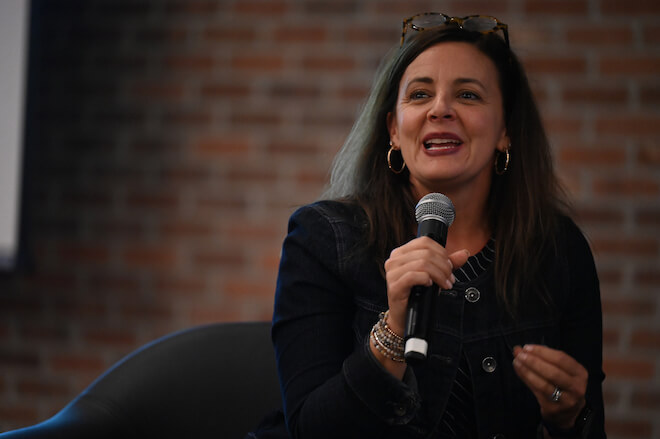
Gupta added, “Younger people want to be in the office.” When you’re just starting out in a career, there’s much to be said for hand-on experience. “There’s a social aspect of it too, that is really important. A third of long-term relationships originate at work,” she said.
“When you think about a city like Philadelphia,” said Ashby, “It’s the ability to go to great restaurants, to go to the theater, to go to the Kimmel Center, to go to sporting events — these are the types of things that bring you to a city. And the fact that they’re all available and open, you want that strategic location. You want to go straight out from work and without having to go home first.”
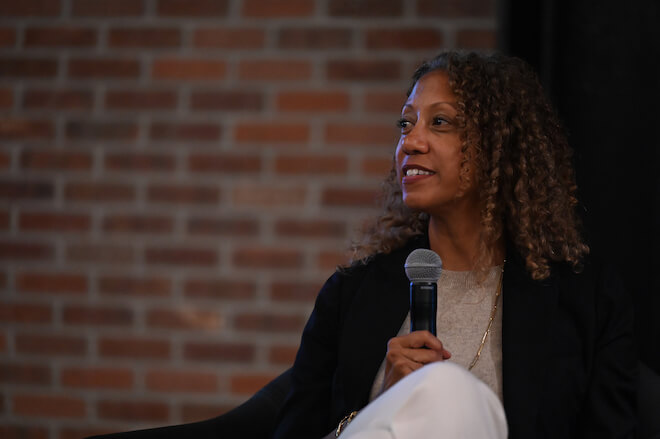
Making Philly return-to-work ready
Val believes Philadelphians themselves make the city worth coming back to. “What makes Philadelphia different from Austin, or Washington, D.C., is our people. During Covid, it was most disturbing to see empty streets and sidewalks. It is just as much our responsibility by keeping that restaurant in our neighborhood alive, but also to remember what made this city special in the first place.”
Ashby agreed, “Philadelphia is a big small city. Everyone knows everyone else. We are all connected. We all have to care for each other. Everybody has to decide this is what we have to do as a city. This is who we are. You have to reconnect with those things that have been torn apart.”
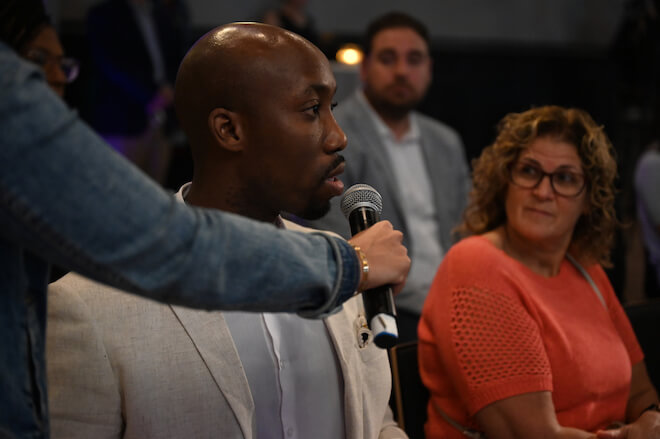
Questions from the audience
An audience member asked, “How do we foster a sense of community within the workplace? How do we strategize and retain young Black and Brown talent in the city? A lot of professionals are leaving. We want to ensure the community aspect is the selling point.”
Val spoke of her struggles as a young Black professional in Philly. It took her 15 years to find her place. In order to keep BIPOC in Philly, she said, Philly has to be intentional. “Atlanta was intentional as hell. They said, We are inviting you: Get your college degree, and work at Coke. Work at Cigna. Now, Atlanta is the hip-hop capital. We could be the Atlanta of the North.”
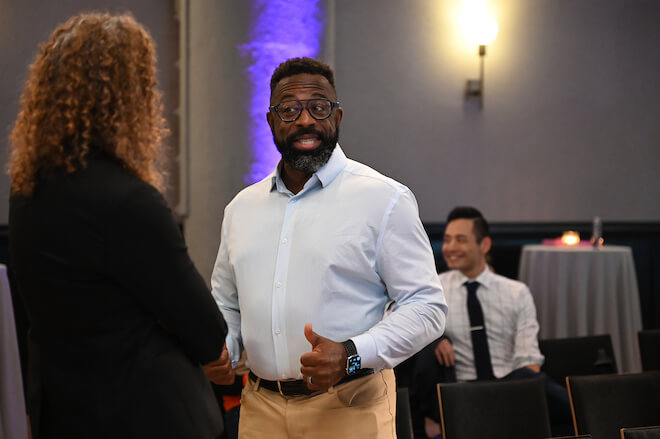
A Center City resident and worker asked what there was to be done to combat the fear — of crime, in particular — that many workers are expressing about returning to the city.
Gupta pointed to the safety, outreach and crime prevention efforts of Center City District (CCD). CCD will increase the number of unarmed, uniformed, radio-equipped Community Services Representatives from 42 to more than 50 this fall. This month they will increase daily bike patrols from 20 to 25. The organization will also add a third Ambassador of Hope team to do outreach to people experiencing homelessness in Center City.
Val suggested taking advantage of resources created by Ready. Set. Philly!, a return-to-work initiative of the City, the Chamber of Commerce and various employers. Among Ready. Set.’s free toolkit is one on public safety.
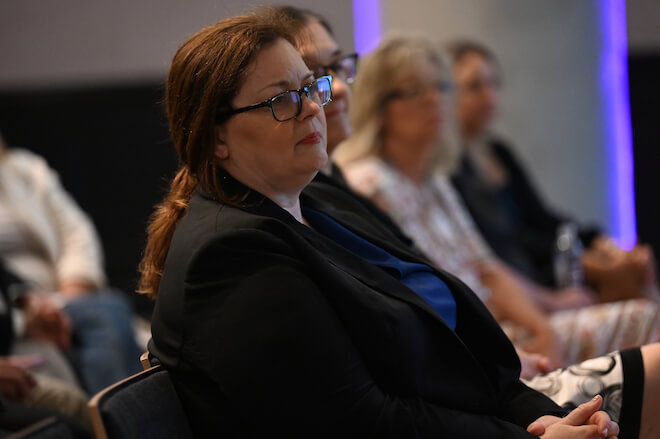
Gupta believes this fear is media-fueled and misplaced. She said her 13-year-old daughter walks to school in Center City. Walking, Val pointed out, is a great way to revive the city.
“Until we kind of get back what we’ve lost, it is our responsibility as a community to help keep each other safe. I live in Point Breeze. I walk to work in Center City every single day. More of us being on the streets will make the streets safer as well. It’s hard to be first, but if we all say, ‘Tuesdays are our day,’ for example, we can do this.”
Watch the full discussion
More photos of the event
